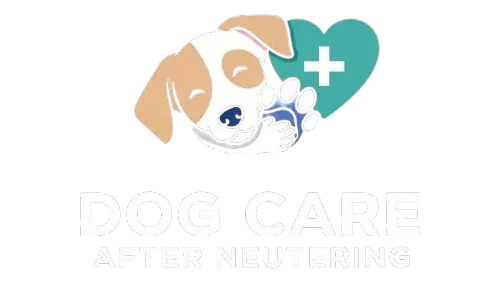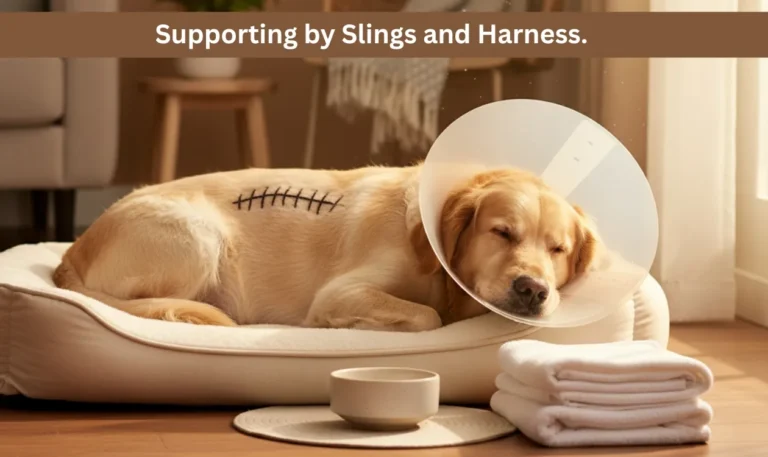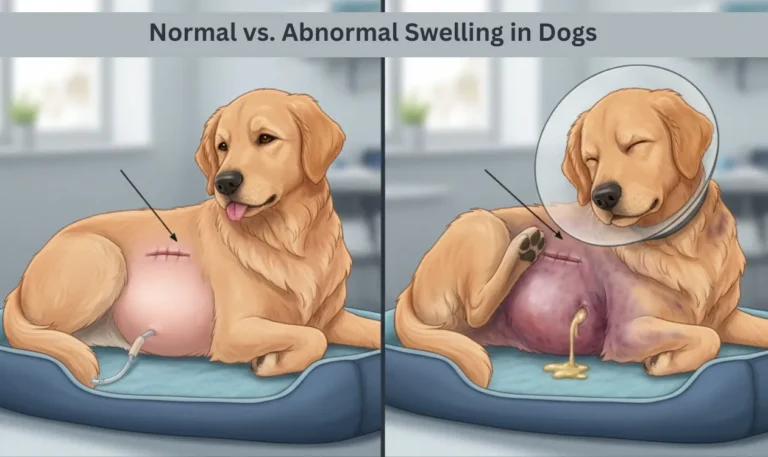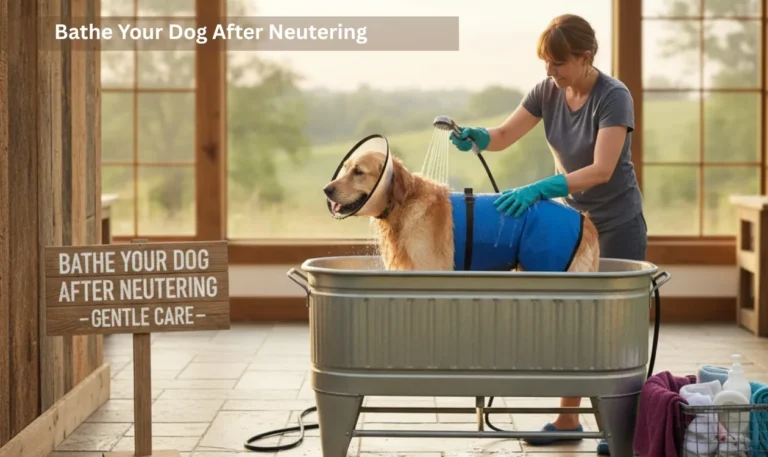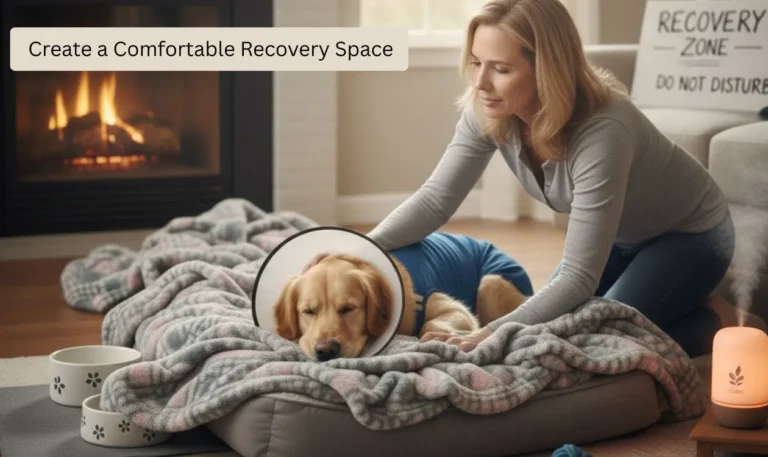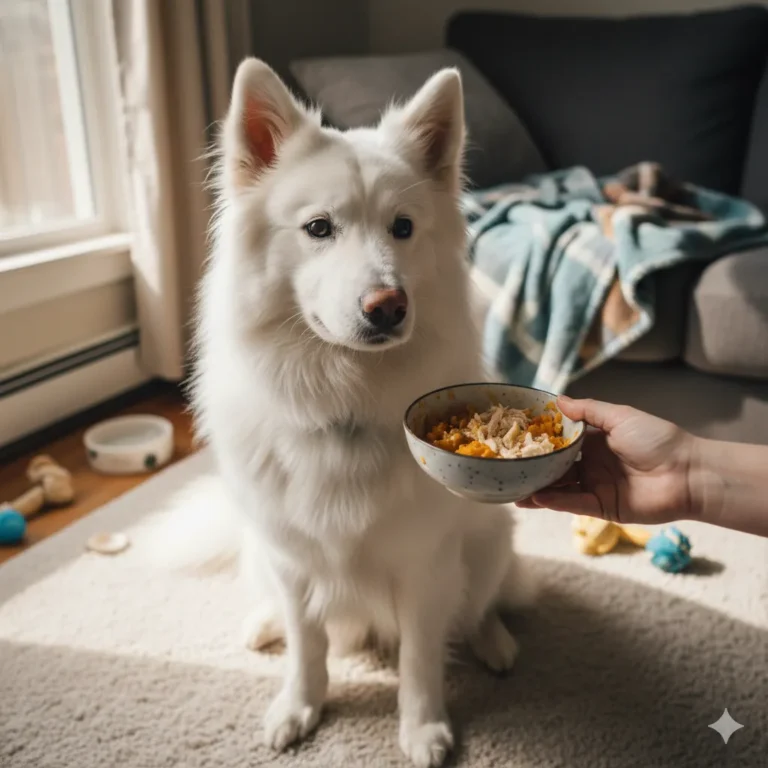Dog Care After Neutering – A Complete Guide to Smooth Recovery
Learn essential tips for dog care after neutering, including recovery steps, feeding, wound care, and activity limits to help your pet heal safely and fast.
One of the most responsible things that you can engage in as a pet owner is to neuter your dog. It prevents undesired litter, regulates hormonal behavior and helps your dog to live long. The recovery process should, however, be done closely and without hurry. Post-neutering care of a dog is a sure way to make sure that your pet recovers faster and that no complications occur because of surgical procedures.
Due to neutering, your dog might be lost, sore or out of his comfort zone during several days. It is quite stressful both to the pets and to their owners, but with proper care of the pet after the surgery, your pet will be able to recover without any issues. In both pain relief and infection prevention, a basic knowledge of what your dog requires immediately after neutering will make you support him in the best way possible.
Making the Recovery Environment Comfortable
The healing process of your dog starts as soon as you take your dog home after the vet. The atmosphere should be calm, warm and hygienic in order to have a relaxing recovery. Do not sit in a very noisy environment and prepare a comfortable sleeping place using a blanket or orthopedic bed. The room should be kept moderately warm and the distractions such as kids or other pets should be kept to the bare minimum in the initial days of rest.
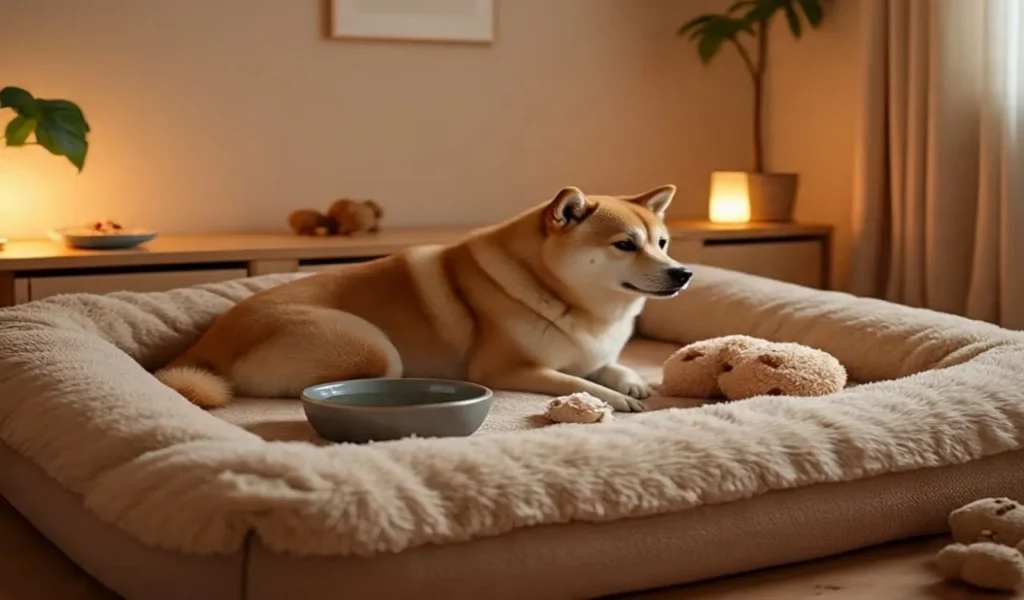
Restrict the movements of your dog would be good so as to avoid straining the incision site. If the need arises, use a crate or a confined area which would deter jumping or running. Have the food and water bowls of your dog close to you so that you do not have to walk a long distance. The aim is to establish the relaxing recovery area where your pet is free to sleep without being disturbed and overworked.
Monitoring the Surgical Incision Daily
Checking the incision of your dog on a regular basis is an important post-neutering process. The operative area must be clean, dry and devoid of redness or swelling. Light bruising is normal, yet discharge, bad smell and large swelling all can be signs of infection and should bring a veterinarian to the patient. Wipe the surrounding with a soft cloth to remove any dirt–do not use an alcohol pad or other severe antiseptics without consultation with your vet.
At all costs keep your dog off the incision that he or she has licked or bitten. You can prevent your pet irritating the wound with the help of an e-collar (Elizabethan collar) or recovery suit. The regular monitoring and light cleaning can aid in the correct healing of the incision. A healthy incision must close slowly and change color to a light shade as the days go by depicting recovery.
Managing Pain and Discomfort Effectively
It is also normal that your dog will be sore or feel uneasy in the end of surgery in a short period. The pain medication or antibiotics may be prescribed by your vet as a reduction in the inflammation and infection prevention. Dosage instructions should always be followed carefully and never use human pain killers since most of them are toxic to dogs. Watch out carefully that side effects like vomiting or lethargy are experienced and call your vet in case of any unusual behaviors.
Comforter is not just all about medication. Pet your dog and reassure him by cuddling or talking to him. Do not handle your new pet much within the initial days, and allow your dog to rest. Having the warm environment will make them feel safer and will allow them to heal faster. Through effective pain management, you will recover your pet sooner.
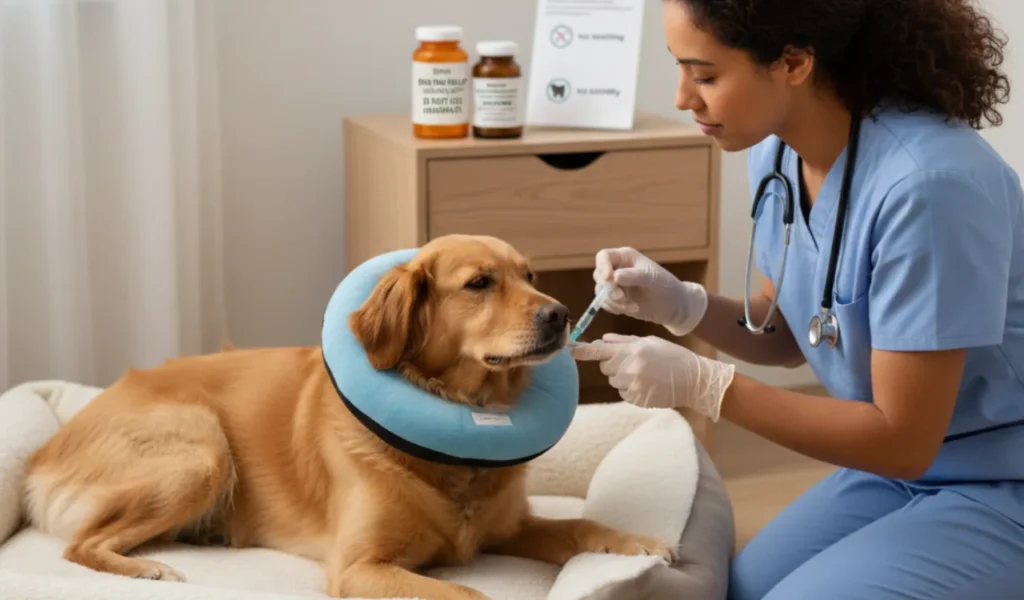
Feeding and Hydration After Neutering
It is normal that the appetite of your dog can go down in the first 24 hours following surgery. Introduce small amounts of soft and easy to digest food, e.g. boiled chicken and rice. Make sure that there is plenty of clean water at all times but never oblige your dog to drink. When the appetite has regained, resume a normal diet slowly over the few days. During recovery, energy and immune support through proper nutrition are very crucial.
High-fat or heavy food should be avoided as it can upset the stomach of your dog. An ideal post surgery diet ought to consist of lean proteins and vitamins needed to facilitate tissue repair. You may also request your vet in relation to supplements to help in the healing process like the omega-3 fatty acids or probiotics. Staying hydrated and fed will also make the process of recovery easier and without weakness or fatigue.
Restricting the Levels of Exercise and Activity
Among the major errors that owners commit after neutering is to give their dog excessive exercise. Limit the time of running, jumping and rough play to at least 10-14 days post-operative. Sudden movement may cause a strain on stitches or may reopen up the wound. However, make short and relaxing walks; sufficient to go to the bathroom. It will avoid complications by phased reinstatement to normal activity.
After your vet says that incision has completely healed, you can progressively add the amount of time of exercise. It is necessary to monitor the energy level of your dog and not to overdo it in the first several weeks. It is high to remember that rest is a component of the recovery process. With a dog kept in check, you will risk less of pain or slow healing and help them go back to the routine safe and quick.
Preventing Licking and Scratching
Surgical wounds lure the attention of dogs, which tend to lick or scratch them, thus prolonging the process or leading to infection. The most effective method of preventing this behavior is the use of e-collar or inflatable recovery collar. In case your dog does not like having a cone on its head, use a soft recovery suit or pet onesie to cover the area of incision. These options are safe and offer security as well as ensuring that your dog is comfortable and not stressed.
Ensure that you pay regular attention to your pet to see how irritated you are around the neck due to collars. The fit should be tight and yet not so tight so that your dog can breathe and eat without any hindrance. Provided that your dog is irritable or nervous, you should shift their focus by playing or engaging their minds. This is aimed at covering the incision before the recovery process is achieved.
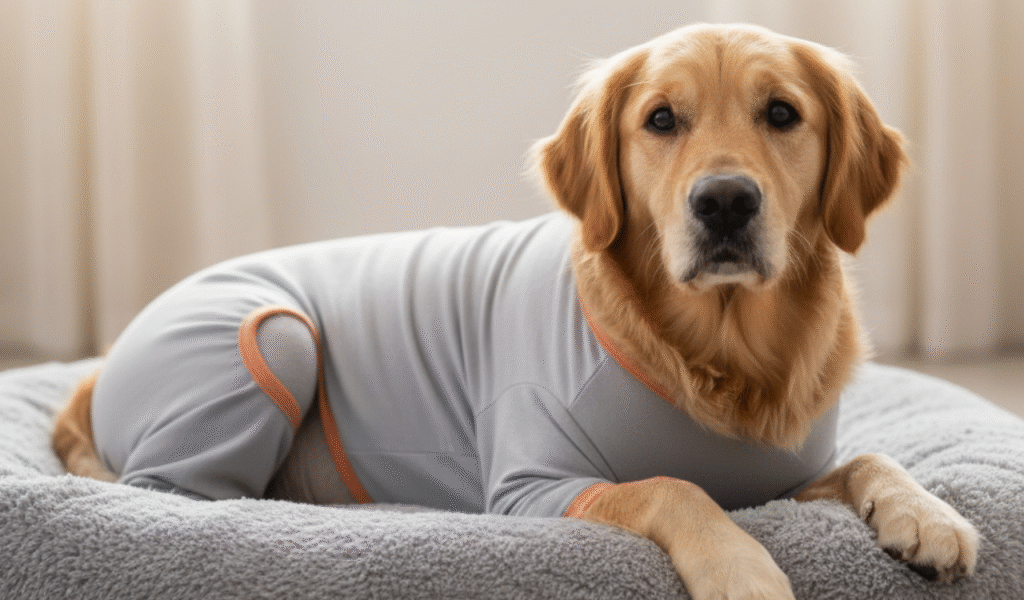
Watching for Signs of Complication
The majority of neutering surgeries are not dangerous, however, one should pay attention to the appearance of any unusual symptoms in the process of recovery. Red flags include excessive swelling, on-going bleeding or pus discharge on the incision. In addition, control the temperature of a dog, fever, shivering or anorexia may be indicators of infection. Ease of access to your veterinarian is necessary in case you notice any of these symptoms.
Also of concern would be behavioral changes like the unusual aggression, depression, or extreme lethargy. Although mild drowsiness is a normal condition because of anesthesia, long-term discomfort is not. Get your vet informed of your dog, and in no case should you feel shy in asking questions. Minor problems can be prevented and converted into serious health complications.
Maintaining Hygiene During Recovery
Hygiene is essential in the prevention of post neutering infections. Keep the resting place of your dog clean, dry and devoid of dirt or hair. clean their bedding regularly and do not allow them to play outside until your veterinarian says it is safe. They should not be bathed before 10-14 days or until the wound is perfectly healed. Rather, wipe your dog with a towel that is moist.
Always keep the paws of your dog clean so that it does not spread dirt on the incision. When you have a dog with long fur around the surgery site, then you can trim it around the area just to avoid water retention. Cleanliness helps in quick healing and reduces the chances of infection of the wound. When it is a healthy environment, the pet is happy and hence the healing.
When to Contact Your Vet
It is important to be in regular communication with your veterinarian during recovery. To ensure that the incision is okay, arrange a follow up appointment at 10-14 days of surgery to remove any stitches where necessary. Your veterinarian will attest to the fact of whether your dog will be able to resume normal activities and diet. It is also a visit where you can discuss any behavioral or health issues that you have noticed in the healing process.
In case you see something that is out of the ordinary before the designated appointment such as constant bleeding, vomiting, or swelling out of proportion, do not wait until the appointment day. Call your vet now to know what to do. It is possible to save complications and protect your dog in case of a quick action. One will always need to trust the professional advice offered in the course of the recovery to ensure that the process of healing is successful.
FAQs : Dog Care After Neutering
Final Thought on Dog Care after Neuterin
It takes a lot of time, patience, and attention to detail to ensure that you take good care of your dog after it is neutered. Whether through making a comfortable place to sleep, proper feeding and hygiene, all the little things will make the healing process faster. The initial two weeks are decisive, and therefore remain alert and keep your dog relaxed and cool.
Keep in mind that post-neutering care of a dog is not only limited to physical recuperation, but also emotional assistance. The support, motivation, and love that you show every day to your pet will make it feel safe and loved. With these tips of post-surgery care and constant contact with your pet (vet), your dog will soon be healed and living a happier and healthier life.
